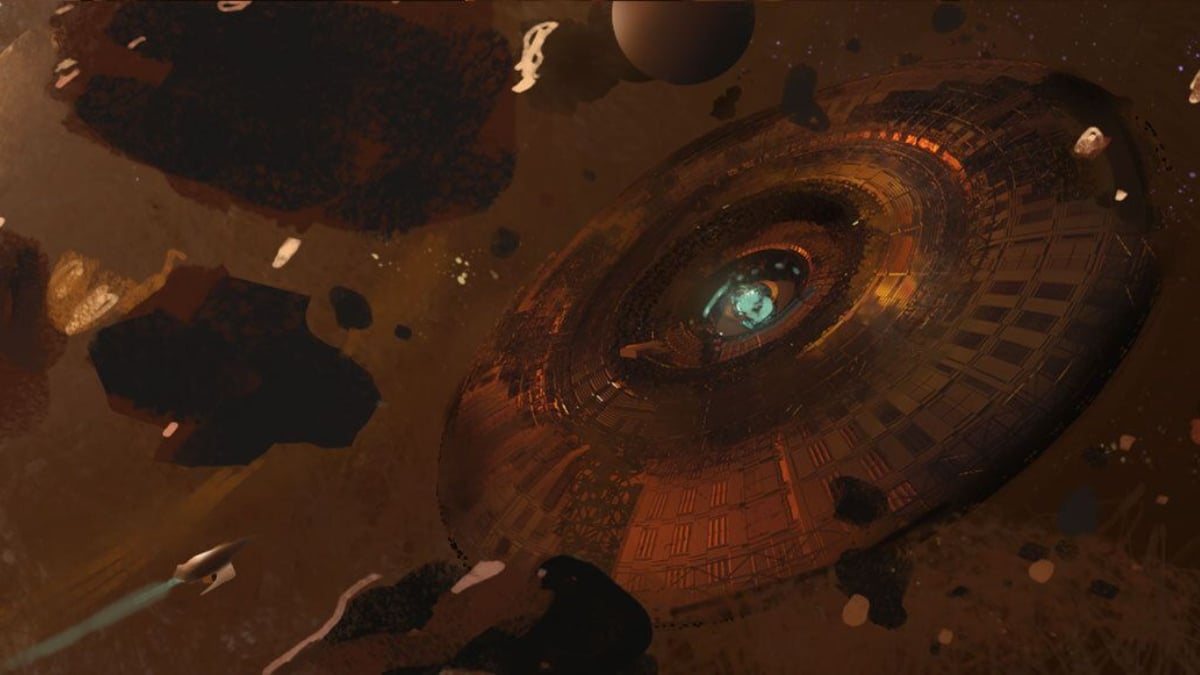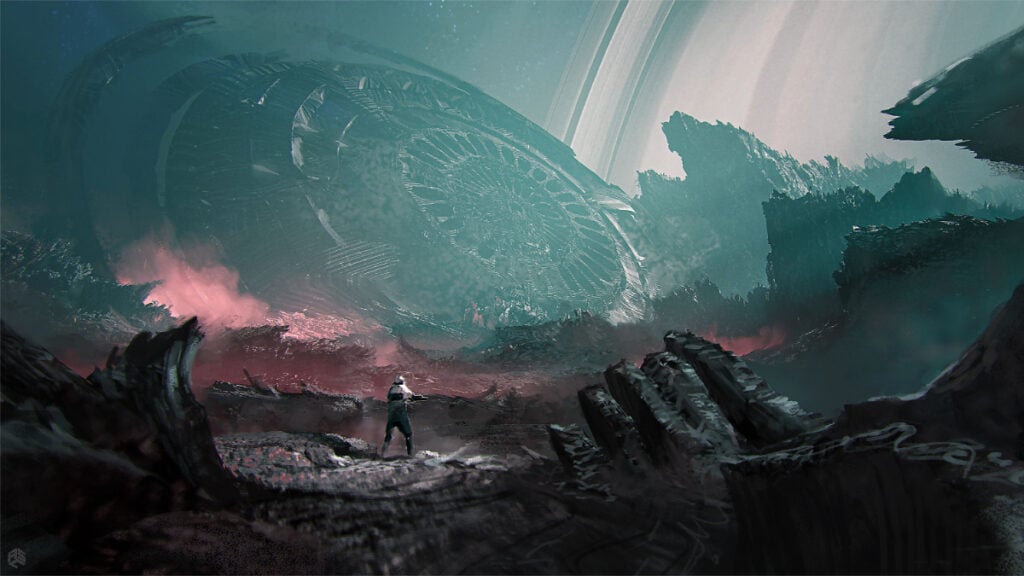Cast a pebble into the Sea of Consequences, and it may be centuries before you see the last of the ripples. That seems to be the guiding philosophy behind Exodus. Archetype Entertainment talks about its upcoming sci-fi epic the way I talk about Mass Effect. It’s about watching the fallout of your decisions on the grandest scale of all. As a Traveler, you’ll shape the course of entire planets, for better or for worse. With so many choice-based games pulling punches, unwilling to go for the big swing, it’s exciting (and nerve-wracking) to watch Archetype cook. Its newest story, “The Archimedes Engine,” shows why.
The Rot and Humanity’s Hope

Exodus is a game all about cosmic consequences: those resulting from your decisions, and those rippling out from stones cast millennia ago. As humanity spread across the galaxy, lighting beacons of hope on the countless worlds it colonized, one tool became paramount. The Archimedes Engines allowed humanity to reshape the galaxy: stabilizing orbits, creating atmospheres, and moving planets into “Goldilocks” habitable zones where they could flourish. These technological marvels enabled prosperity and growth on an unimaginable scale. Then the Engines started to fail.
The Celestial civilization that created the Archimedes Engines went extinct long ago, leaving no one to repair and maintain them. So when a technological virus called “The Rot” cripples the machine keeping your home moon of Lidon alive, you (the Traveler) must set out on the titular journey to repair it. What’s exciting is the emphasis Archetype is placing on choice. If you’re like me, you’ve played plenty of sci-fi games that let you save and damn planets. Few of them give you real ownership over your choices, and it’s tantalizing to see Exodus push for just that. Whether you’ll stand toe-to-toe with Commander Shepard when the dust settles remains to be seen.







